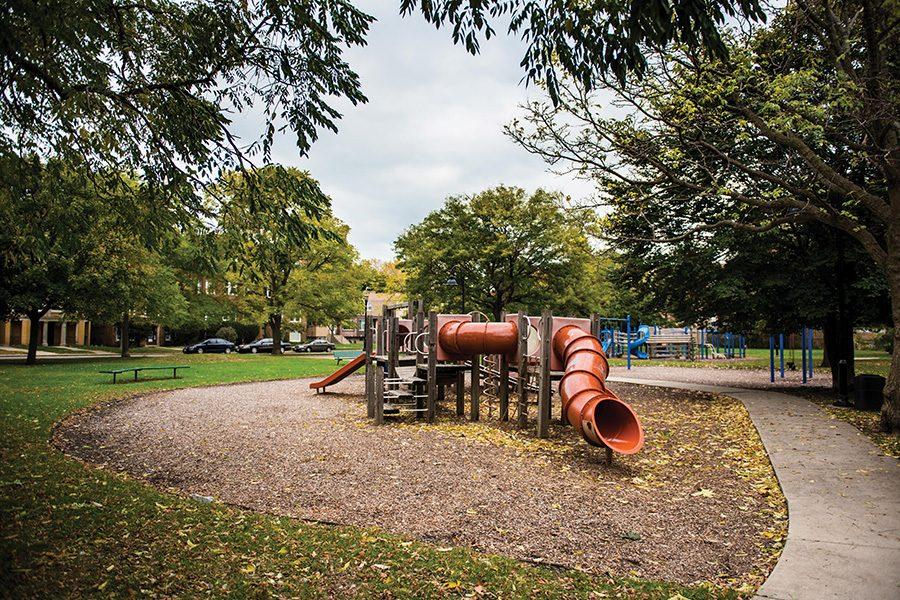City encourages online shoppers to donate to tree campaign through Amazon
Daniel Tian/Daily Senior Staffer
Evanston experiences a decline in its tree population. City officials say Evanston residents can help the city buy new trees by ordering from Amazon.
October 31, 2016
In ten years, Evanston lost more than 2,000 trees. Today, city officials have turned to Amazon to replenish the “urban canopy.”
Evanston officials are asking local online shoppers to contribute to the “I Heart Evanston Trees” program by donating a portion of their Amazon purchases to the campaign through AmazonSmile.
AmazonSmile is a charity fundraising initiative run by Amazon which lets online shoppers donate 0.5 percent of their purchase to a charity of their choice. City officials registered with Amazon about six months ago to raise additional revenue for the “I Heart Evanston Trees” program aimed at replenishing urban trees.
“Evanston has lost so many trees in recent years,” Ald. Eleanor Revelle (7th) said. “It’s great to have a new program to raise additional funds to replace trees and enhance our urban forest.”
Amazon requires a minimum amount of money to be collected through AmazonSmile in order for the charity to receive its fundraised donation. “I Heart Evanston Trees” has failed to reach the minimum amount of money since joining, but hopes this shopping season will be a turnaround for the effort, Environmental Services Bureau Chief Paul D’Agostino said.
“Half of one percent doesn’t seem like much, but it adds up quickly,” D’Agostino said. “It’s the holiday season — that’s when obviously more people are shopping.”
A tree costs somewhere between $250 and $400 to buy and plant, environmental project coordinator Kumar Jensen said. The main source of revenue for “I Heart Evanston Trees” has been the campaign’s tree plant express program, which allows residents to buy replacements for trees that have been cut down near their homes.
Jensen said the express program raises somewhere between $5,000 to $7,000 a year for new trees.
Since 2006, Evanston has lost more than 2,000 trees, according to the “I Heart Evanston Trees” website. This is mainly due to the Emerald Ash Borer, an exotic beetle that disrupts the flow of water and nutrients in trees causing them to die. This beetle first appeared in the Detroit area in 2002 and has since spread to most of the West and Midwest, causing a nationwide epidemic.
Because of the beetle epidemic, the city has been cutting down more trees than it has been planting in the past few years, D’Agostino said.
In 2013, Evanston started the “I Heart Evanston Trees” program to address the issue. Since then, the city has raised $25,000 to plant more than 100 trees in the community mainly through the tree plant express program, according to the campaign’s website. This year, the city has raised $2,525 of its $10,000 goal.
The biggest constraint in planting new trees is raising the funds to purchase them, Jensen said. With this new effort, the city is now planting about as many trees as it has to cut down and is trending toward more new trees, she said.
However, the initiative is not only about raising money and planting more trees, Jensen said. The campaign also hopes to raise awareness about the benefit of planting trees and the urban canopy in general.
“I Heart Evanston Trees” also hosts an annual art contest that encourages competition between local artists.
“The value of that was to get people to express their thoughts and feelings on the urban canopy,” Jensen said.
Email: [email protected]
Twitter: @classperezident


